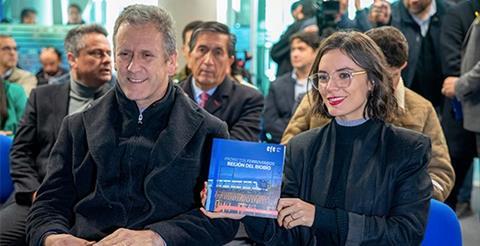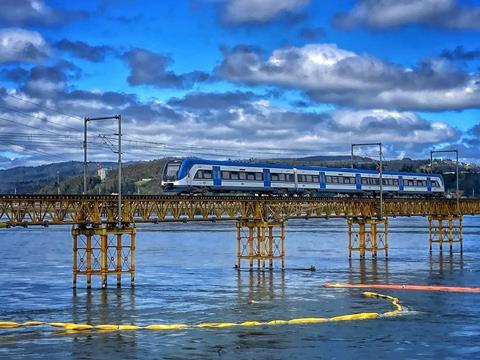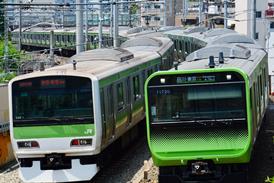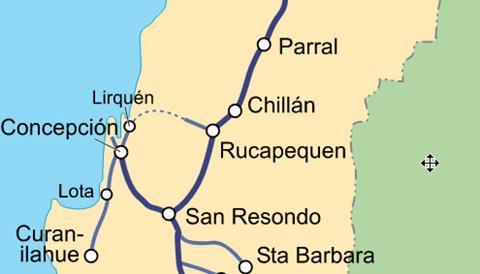
CHILE: A US$3·2bn railway investment plan for the Biobío region, centred on Greater Concepción, was presented on May 17 by Minister of Transport & Telecommunications Juan Carlos Muñoz, Minister General Secretary of Government Camila Vallejo, and President of state railways group EFE, Eric Martin.
The scheme forms part of the government’s Trenes para Chile (‘Trains for Chile’) programme and consists of a set of projects underway, in the design phase or under tendering for feasibility studies.
Biotren capacity increase
US$290m is to be spent on increasing capacity on Line 2 of the Biotren suburban service, which links Concepción with Coronel.

Between the first months of 2017 and 2024, ridership on the Biotren network has grown almost seven-fold, from 8 000 to almost 54 000 passengers a day. This has led to overcrowding and delays. To enhance capacity, a number of interventions are being proposed:
- the purchase of 10 new trainsets;
- refurbishment and extension of all 14 stations, to facilitate the use of pairs of trainsets in multiple;
- upgrading the power supply to support the use of longer formations;
- construction of a maintenance workshop in the Concepción area.
The measures are expected to increase the capacity of Line 2 by 50% by early 2026, and double it by the end of 2027.
Biotren extension study
EFE is currently working on the replacement of the 1·9 km bridge over the Biobío River on the Line 2 corridor, located between Concepción and Juan Pablo II stations. The current single-track iron bridge, which is more than 100 years old, will be replaced with a double-track concrete structure. This will be more resilient to earthquakes and salt. Construction started in 2022 and is expected to be completed in 2025 at a cost of US$267m.
After the completion of the bridge, Line 2 is planned to be extended south from Coronel to Lota, adding five new stations. A call for tenders for the design process and environmental impact assessment is expected in the third quarter of this year. The extension is scheduled to be completed by 2030 at a cost of US$155m.
Further plans
Pre-feasibility studies are underway for the upgrading and electrification of the line that connects Rucapequen southwest of Chillán with Concepción. This would enable the introduction of a more frequent through inter-city service between Santiago, Chillán and Concepción, and permit freight trains to run on a more direct route instead of using the longer corridor through San Rosendo as they do currently.
Pre-feasibility studies are also underway for the creation of Biotren Line 3 from Concepción to Penco and Lirquén. The project would consist of the construction of five stations and the purchase of four trainsets.
Another set of feasibility sturdies is being tendered for the estimated US$99m extension of the Biotren service to Los Ángeles.
‘The Trenes para Chile programme is a commitment that the government is fulfilling with concrete actions’, Juan Carlos Muñoz said when announcing the plans. ‘In recent years we have made progress in this task of enhancing the railway network, adding modern vehicles that have not only changed the quality of service that benefit thousands of people, but also the railway landscape of Chile with important leaps in modernity that make us stand out at the Latin American level.’
- Subscribers can read a feature article on the Chilean government’s US$8bn railway development programme in the August 2023 issue of Railway Gazette International.


















